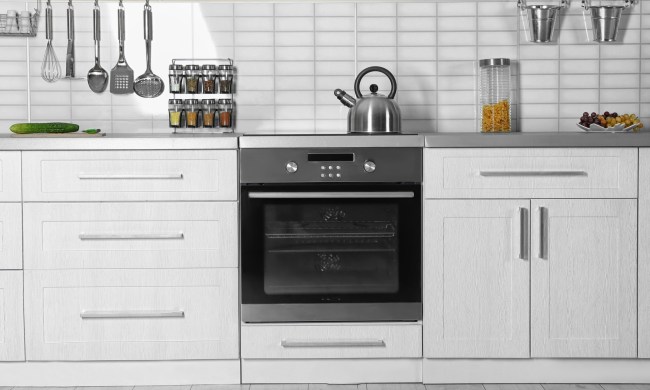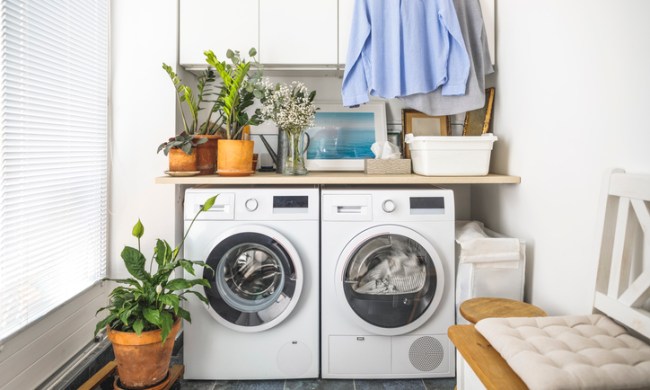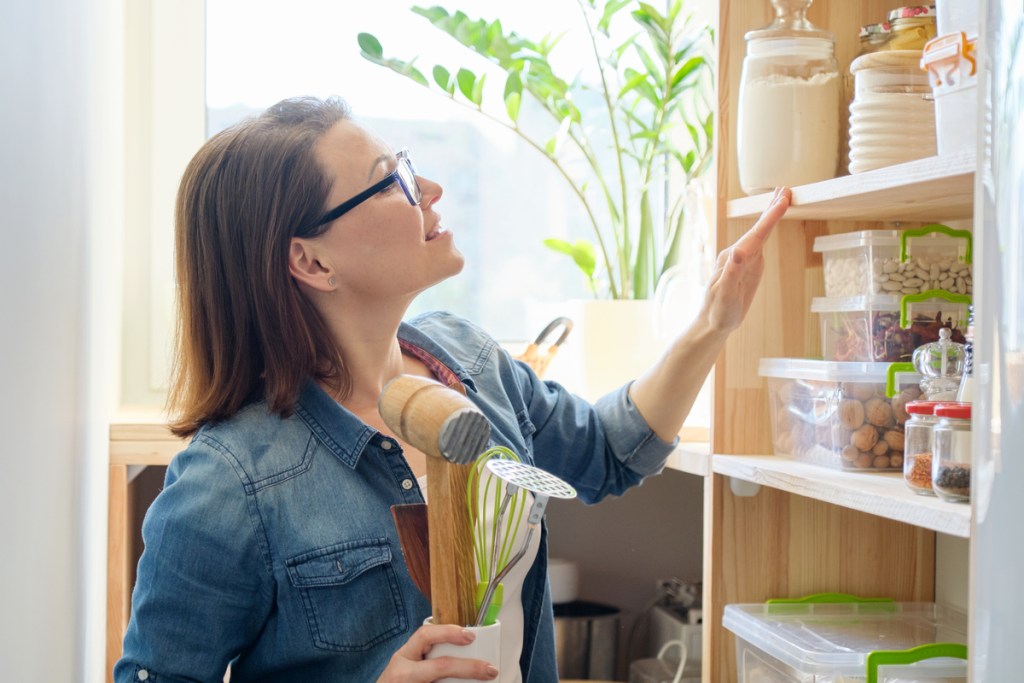
While it can come as a shock to some, plastic and glass storage containers are not wholly interchangeable. Each material provides unique benefits when it comes to organizing the kitchen. Whether you’re choosing materials based on aesthetics, longevity, accessibility, or functionality, it’s important to familiarize yourself with the pros and cons of your food storage solutions.
- Glass is better for the environment
- Glass provides a healthier alternative
- Plastic is better for packed lunches
- If you’re storing leftovers, choose glass
- When it comes to saving space, opt for plastic
- Choose glass for the aesthetic
- Do glass containers keep food fresh longer?
- Some glass and plastic containers are microwave-safe
If you’re unsure which container makes sense for you and your home, it might be time to draw up some conclusions on why these two materials outperform one another in different ways. Below are our comparisons between glass vs. plastic containers to help you decide which is truly a better option for your kitchen.
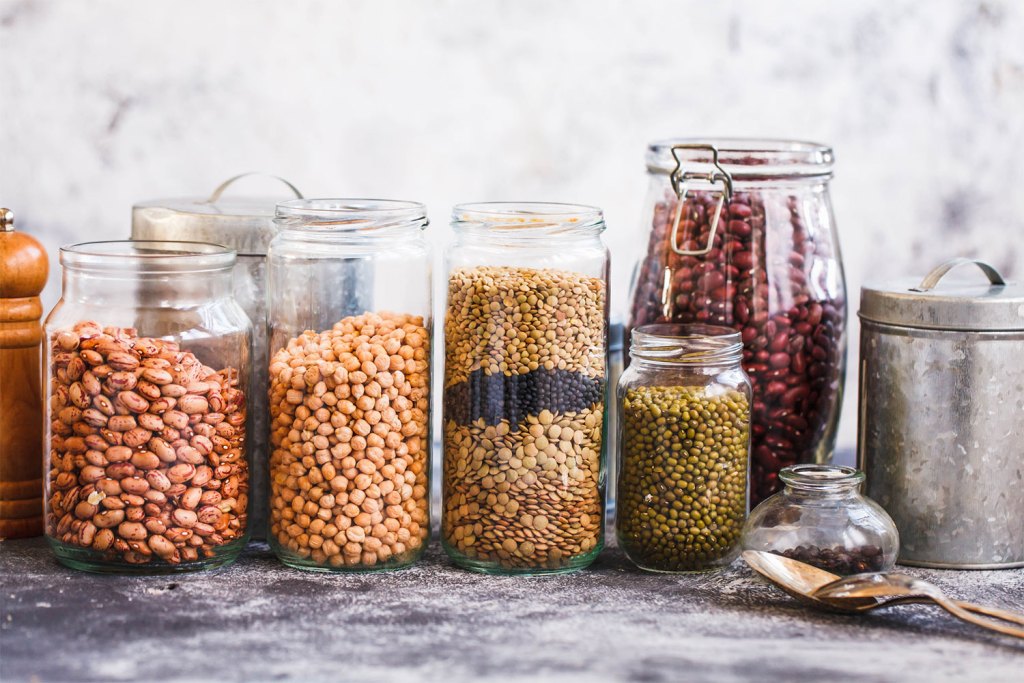
Glass is better for the environment
Regarding durability, longevity, and its ability to be recycled, glass outperforms plastic in environmental impact. If properly cared for, glass can outlast the lifespan of plastic in the kitchen. Where plastic is prone to melting or discoloration, glass remains a durable and long-lasting solution for food storage.
Additionally, glass is 100% recyclable, and so long as it is correctly disposed of, you can recycle glass at a designated facility. Unfortunately, due to the wide variety of plastic products available, many recycling plants only offer recycling for a few types of plastic. Anything non-recyclable is tossed into a landfill, where it remains for many years.
Therefore, glass wins the argument for the most environmentally friendly.
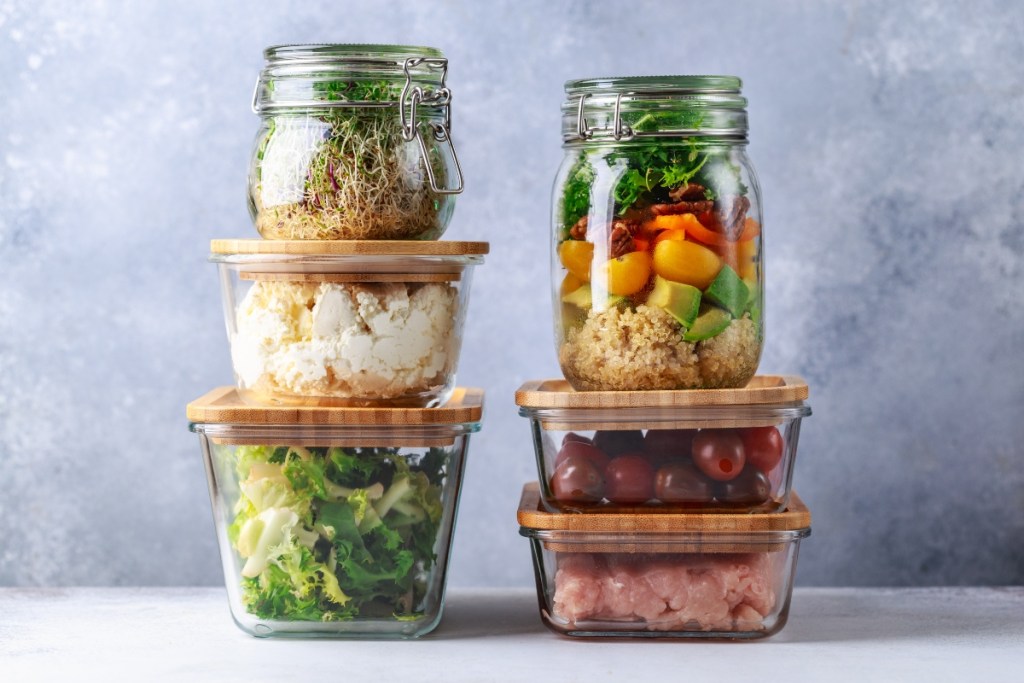
Glass provides a healthier alternative
When it comes to health benefits and safety in the kitchen, glass is a better material. But, unfortunately, even BPA-free plastics are prone to releasing toxic chemicals if heated. This makes washing, microwaving, and heating plastic containers a threat to your health. Plastic containers are also prone to warping and melting, creating a challenge when placing them in the dishwasher.
Luckily, glass is heat-tolerant and can be microwaved, heated in the oven, or placed into the dishwasher. Since it is non-porous, glass materials do not absorb or release any toxic chemicals or microscopic particles when used.
If you are looking for a food-safe and family-safe storage solution, glass is the better choice.
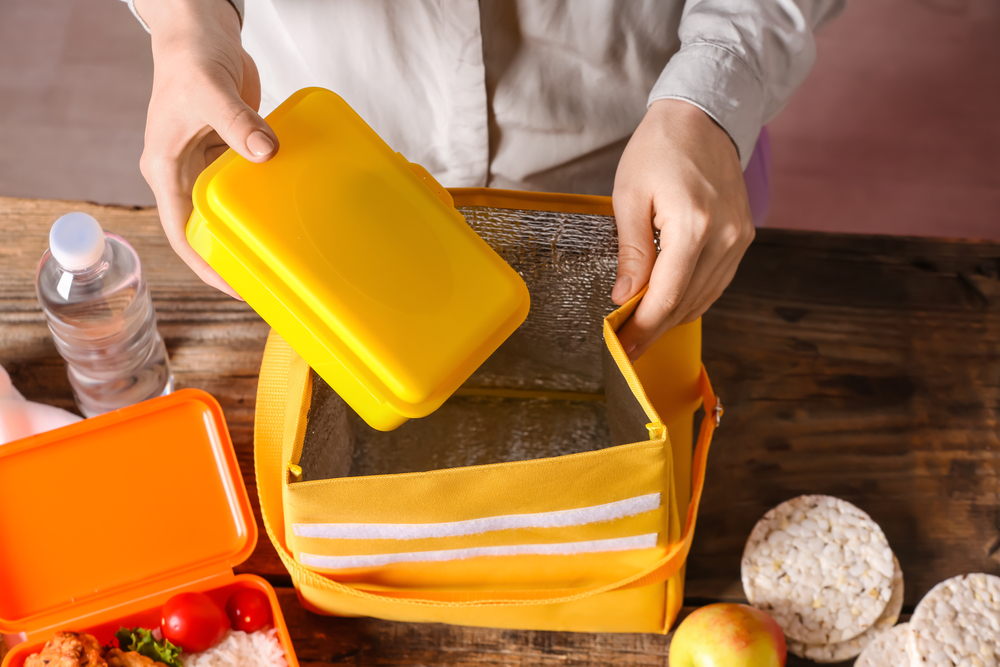
Plastic is better for packed lunches
For packed lunches, it’s a no-brainer that plastic is better for transporting food. Plastic storage containers are light and easy to carry. You don’t have to worry about the glass shattering or the effort of lugging around a heavy lunch box. They are especially great for kids who need a lightweight lunch box for school and are prone to accidental spills and drops.
Additionally, plastic containers often come in sets of different sizes, so you can section off sandwiches, snacks, dip, and other treats to create a more effective lunch organization.
Whether you’re taking lunch to work or packing snacks for the kids, plastic is a favorable solution.
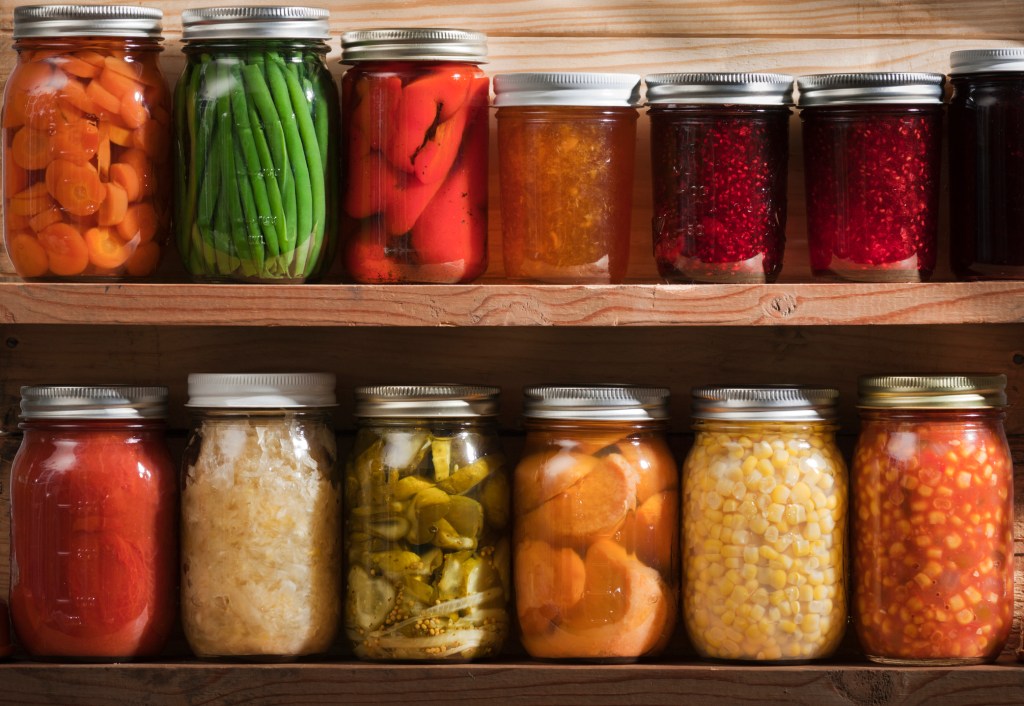
If you’re storing leftovers, choose glass
Plastic containers can release chemicals when frozen just as they can when heated. For better food safety, opt for glass.
The right glass containers are freezer and refrigerator-safe, meaning they won’t release any harsh chemicals or break if frozen. Some glass storage containers are also leakproof, which offers a tight seal to prevent spills or food from going bad. This quality also makes glass a perfect choice for homeowners looking for long-term storage solutions such as canning or pickling.
If you want a storage container that makes freezer and refrigerator storage easier, choose glass.
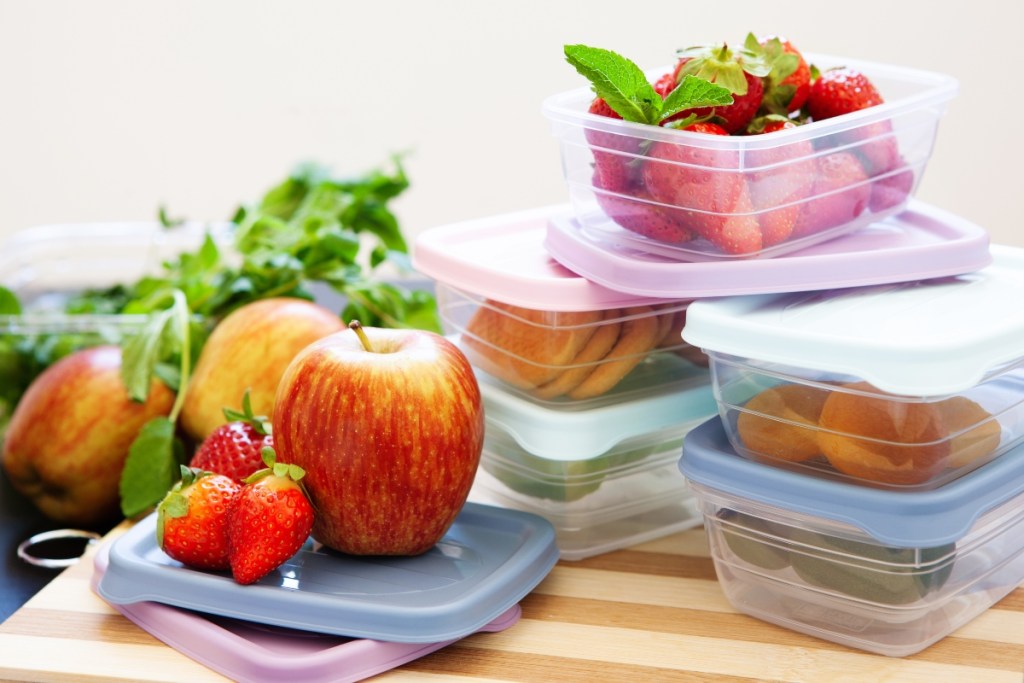
When it comes to saving space, opt for plastic
While you can stack and store glassware on top of one another, you run the risk of damaging or breaking the containers. Glass containers also take up a lot of space since you have to lay them on the shelf with care to prevent ruining them.
On the other hand, plastic containers are perfect for stacking. You can also store all of your plastic lids inside one container for more efficient storage. There’s no worry about items falling over or breaking because plastic is a durable material.
Some plastic containers are also retractable, meaning they are built to shrink down into a more compact form for more accessible storage. If you want to save space, plastic is the better alternative.
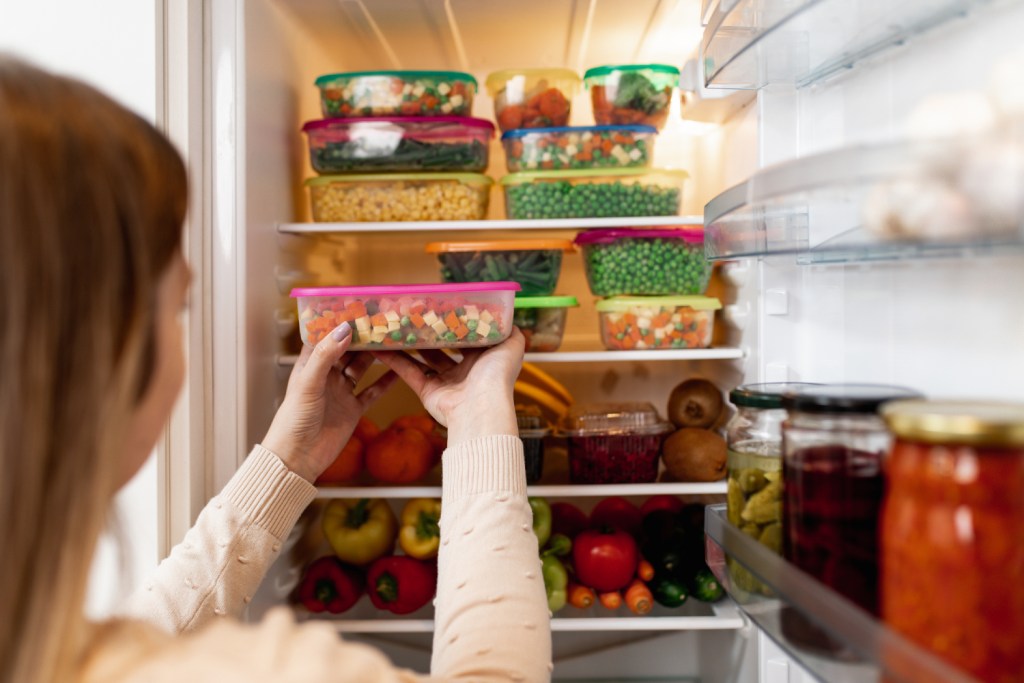
Choose glass for the aesthetic
If you have an open-style pantry, glass container storage solutions are a sophisticated choice. Aesthetically speaking, storing items in glass looks far more put together than storing food in plastic. Furthermore, if you are serving food in a glass dish, it looks much more elegant than doing so with plastic. You also avoid the risk of discoloration or strange smells that plastic containers often absorb.
If you want your kitchen to have an aesthetic appeal, glass is a great option. It’s transparent so that you can see all of your food items without confusion, and it retains its stunning appearance indefinitely.
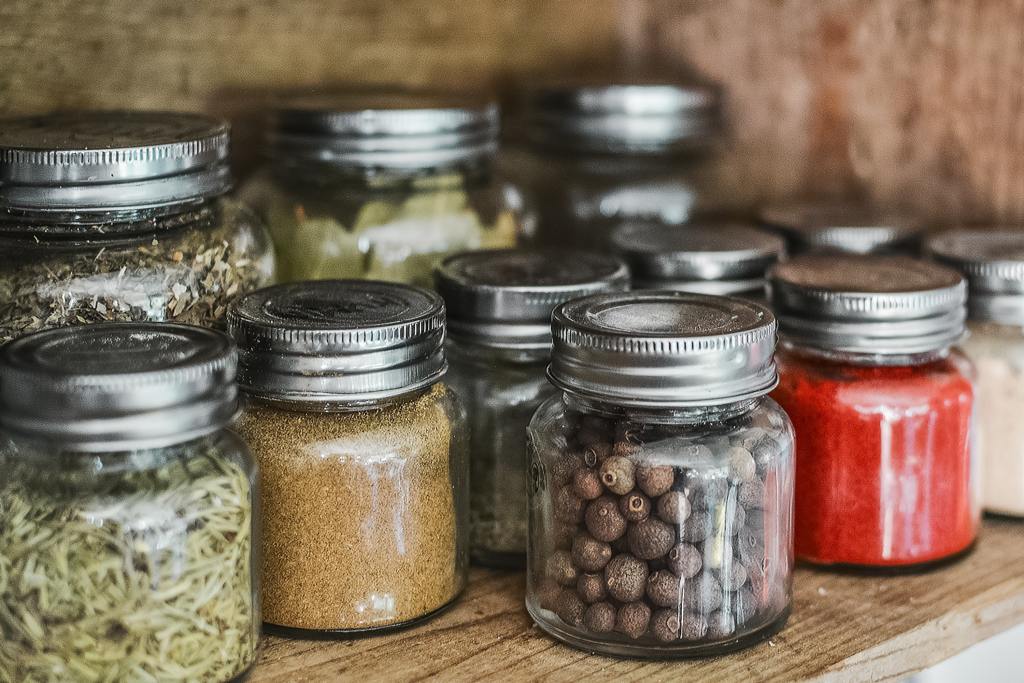
Do glass containers keep food fresh longer?
Typically, glass containers will keep food fresh for longer periods of time. While plastic containers can be porous, unable to withstand extreme temperatures, and more chemically saturated, glass is considered a more inert material. This means it is almost impenetrable. So, moisture, bacteria, and chemicals cannot get into your containers once the lid is closed.
Still, your leftovers and most refrigerated foods will spoil eventually, no matter what material they are packed in. However, glass is better at keeping food fresh for longer and preventing any chemical or bacterial contamination.
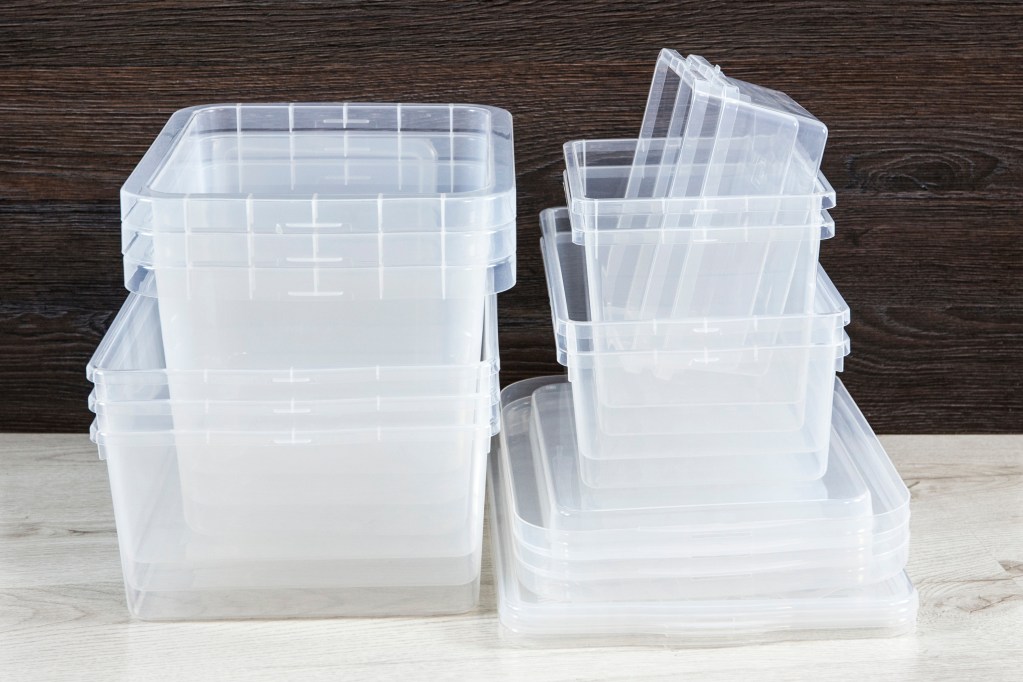
Some glass and plastic containers are microwave-safe
Both glass and plastic containers can be microwave-safe. However, not all glassware and plastic containers are safe for microwave use. It’s important to look at the bottom of the container or at the product’s packaging before placing it in the microwave. Most containers will have an engraved label telling you whether they can go in in your microwave.
Typically, glass containers are more microwave-friendly, and some can even handle more extreme heat, meaning you can place them in the oven. However, not all glass containers are treated equally, so it’s important to look for the label. Plastic, however, is unsafe for the oven, as plastic cannot handle extreme temperatures.
Additionally, some glassware is safe for the freezer, but most plastic containers are not. Again, be sure to look for a label indicating whether the product is freezer-safe. After all, some glassware will crack in the freezer. Plastic containers, however, cannot be placed in the freezer since plastic can degrade in the freezer over time.
When it comes down to choosing between glass and plastic, we prefer glass containers for food. They are an aesthetic component of any pantry and are perfect for storing items in the fridge or freezer. We also value glass containers for their non-toxic, non-porous material, as stains, discoloration, and toxic chemicals are not something we want to have in the kitchen. Glass is a fantastic material for food storage, and we prefer it over plastic.


